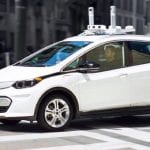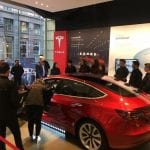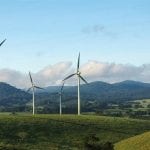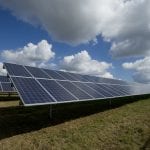Around The Web
New perspective on how lemurs got to Madagascar
Water ice 'detected on Moon's surface'
NZ Market: NZUs extend record highs again amid lack of supply, uncertainty
Leadership crisis could pull Australia to the right on climate, pave way for Paris exit
Managing the welfare of animals in the wild
EU Market: EUAs extend 10-year high once more after another bullish forecast
Australia's climate wars: a decade of dithering – video
From John Howard’s promise to introduce an emissions trading system in October 2007 to Malcolm Turnbull’s dumping of the emissions reduction target from the national energy guarantee in August 2018, the past 11 years of Australian politics has been marked by a torturous series of backflips and U-turns on energy and climate change policy. The so-called ‘climate wars’ span the leadership of five Australian prime ministers – John Howard, Kevin Rudd, Julia Gillard, Tony Abbott and Malcolm Turnbull – and show no sign of ending.
• Malcolm Turnbull survives Peter Dutton leadership challenge – for now
Continue reading...GM Holden seeks 150 engineers to accelerate electric, autonomous vehicles
 GM Holden will hire 150 new engineers at its Port Melbourne plant, to fast-track the development of 20 new EVs by 2023, and an AV by 2019.
GM Holden will hire 150 new engineers at its Port Melbourne plant, to fast-track the development of 20 new EVs by 2023, and an AV by 2019.
The post GM Holden seeks 150 engineers to accelerate electric, autonomous vehicles appeared first on RenewEconomy.
Australian Tesla customers get to see and touch, but not yet drive, a Model 3
 Thousands of reservation holders invited to inspect "mass market" Tesla Model 3 EV in Australia for first time. They will have to wait at least another year for delivery.
Thousands of reservation holders invited to inspect "mass market" Tesla Model 3 EV in Australia for first time. They will have to wait at least another year for delivery.
The post Australian Tesla customers get to see and touch, but not yet drive, a Model 3 appeared first on RenewEconomy.
First turbine installed at world first wind-solar-battery hub
 The first wind turbine in what will be world’s first utility-scale, on-grid wind, solar and battery energy storage project has been installed.
The first wind turbine in what will be world’s first utility-scale, on-grid wind, solar and battery energy storage project has been installed.
The post First turbine installed at world first wind-solar-battery hub appeared first on RenewEconomy.
Queensland’s biggest wind farm powers up near Mareebra
 Ratch Australia begins electrification of its 180MW Mount Emerald wind farm, says full operation expected to commence in November this year.
Ratch Australia begins electrification of its 180MW Mount Emerald wind farm, says full operation expected to commence in November this year.
The post Queensland’s biggest wind farm powers up near Mareebra appeared first on RenewEconomy.
SA council launches tender to build 10MW solar farm in Riverland region
 Berri Barmera Council issues tender to build and operate 10MW solar farm in South Australia Riverland region.
Berri Barmera Council issues tender to build and operate 10MW solar farm in South Australia Riverland region.
The post SA council launches tender to build 10MW solar farm in Riverland region appeared first on RenewEconomy.
Australia has no climate policy: a quick response to a drawn-out farce | Graham Readfearn
Climate change denial is at the root of the half-baked policies and outright wrecking that have blighted the past decade
I needed to write this column really quickly, otherwise we might have had a new prime minister before I’d finished, and the climate policy we don’t have might have changed several times.
I gave myself 30 minutes because that reflects the fickle care and short-termism that has been afforded climate change in Australia in recent years.
Continue reading...Mojo co-founder Darren Miller gets top job at ARENA
 Darren Miller, the co-founder of electricity retailer Mojo Power has been named as the new chief executive of ARENA.
Darren Miller, the co-founder of electricity retailer Mojo Power has been named as the new chief executive of ARENA.
The post Mojo co-founder Darren Miller gets top job at ARENA appeared first on RenewEconomy.
Oil, corn ethanol stir controversy as California addresses rising transport sector emissions
Turnbull survives as puppet of right wing, as Australia burns
 Malcolm Turnbull gets to continue as PM – at the cost of his credibility and at the behest of the party’s ring wing. Australia will now be looking for leadership. But they won’t expect it to come from the federal Coalition.
Malcolm Turnbull gets to continue as PM – at the cost of his credibility and at the behest of the party’s ring wing. Australia will now be looking for leadership. But they won’t expect it to come from the federal Coalition.
The post Turnbull survives as puppet of right wing, as Australia burns appeared first on RenewEconomy.
Tesla rival Lucid Motors may snatch Saudi Arabia EV funding
 The Saudi Arabian fund that has had its eye on Tesla is now in talks with EV rival Lucid Motors
The Saudi Arabian fund that has had its eye on Tesla is now in talks with EV rival Lucid Motors
The post Tesla rival Lucid Motors may snatch Saudi Arabia EV funding appeared first on RenewEconomy.
The NEG’s dead – let states and territories lead on energy
 So the NEG is dead – where to now? It’s time for politics to adopt the renewables model: a decentralised and distributed framework.
So the NEG is dead – where to now? It’s time for politics to adopt the renewables model: a decentralised and distributed framework.
The post The NEG’s dead – let states and territories lead on energy appeared first on RenewEconomy.



